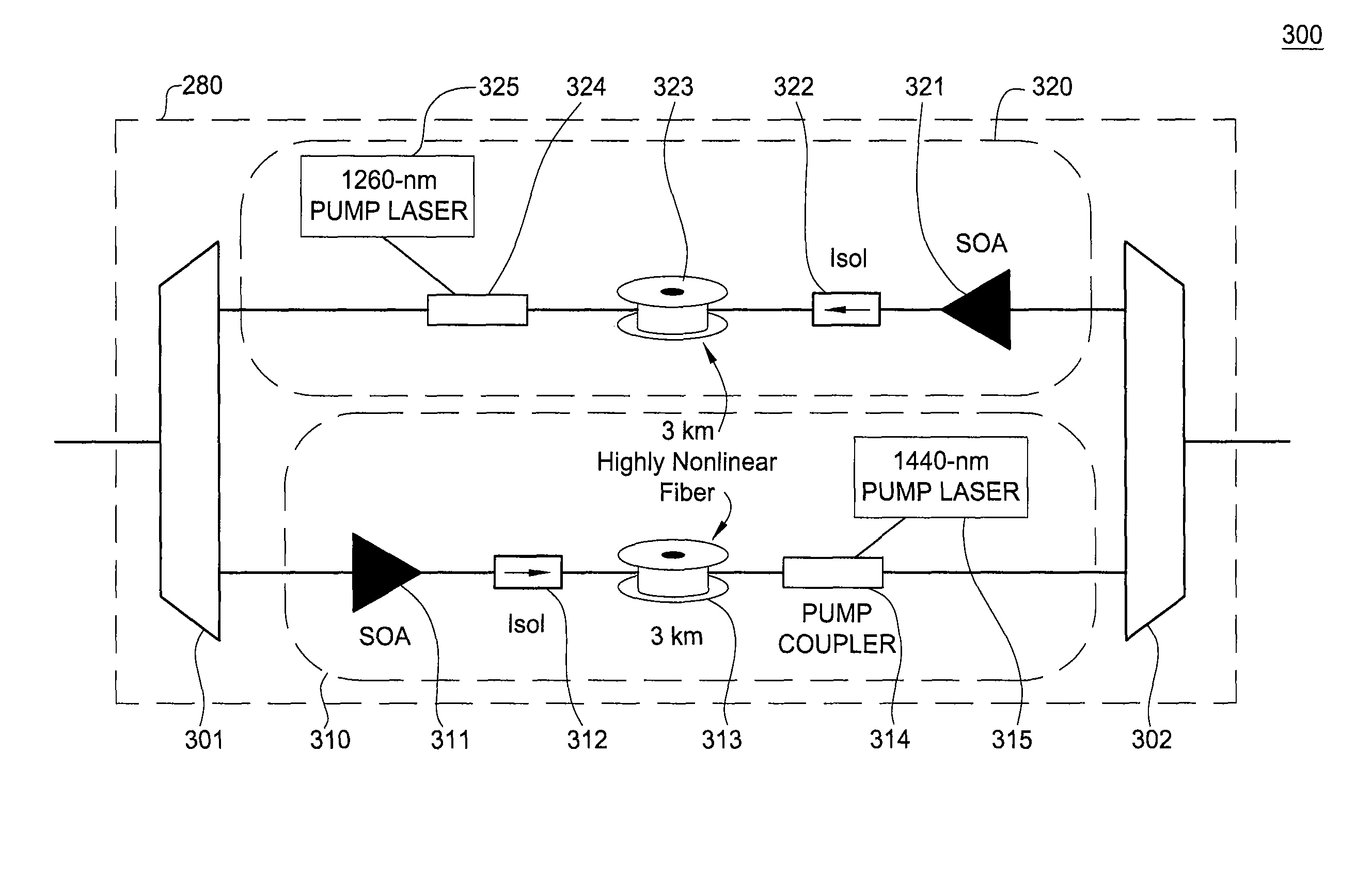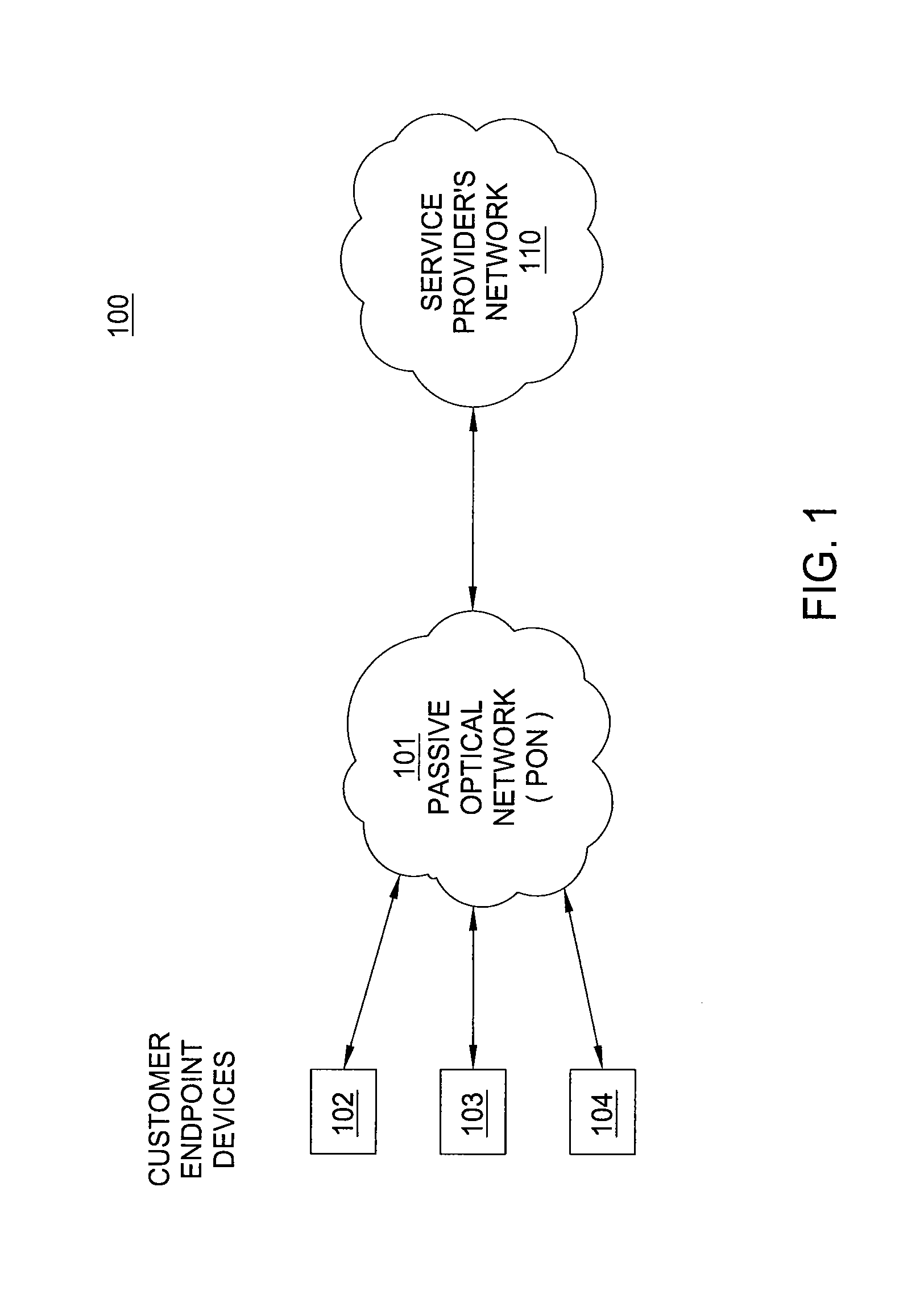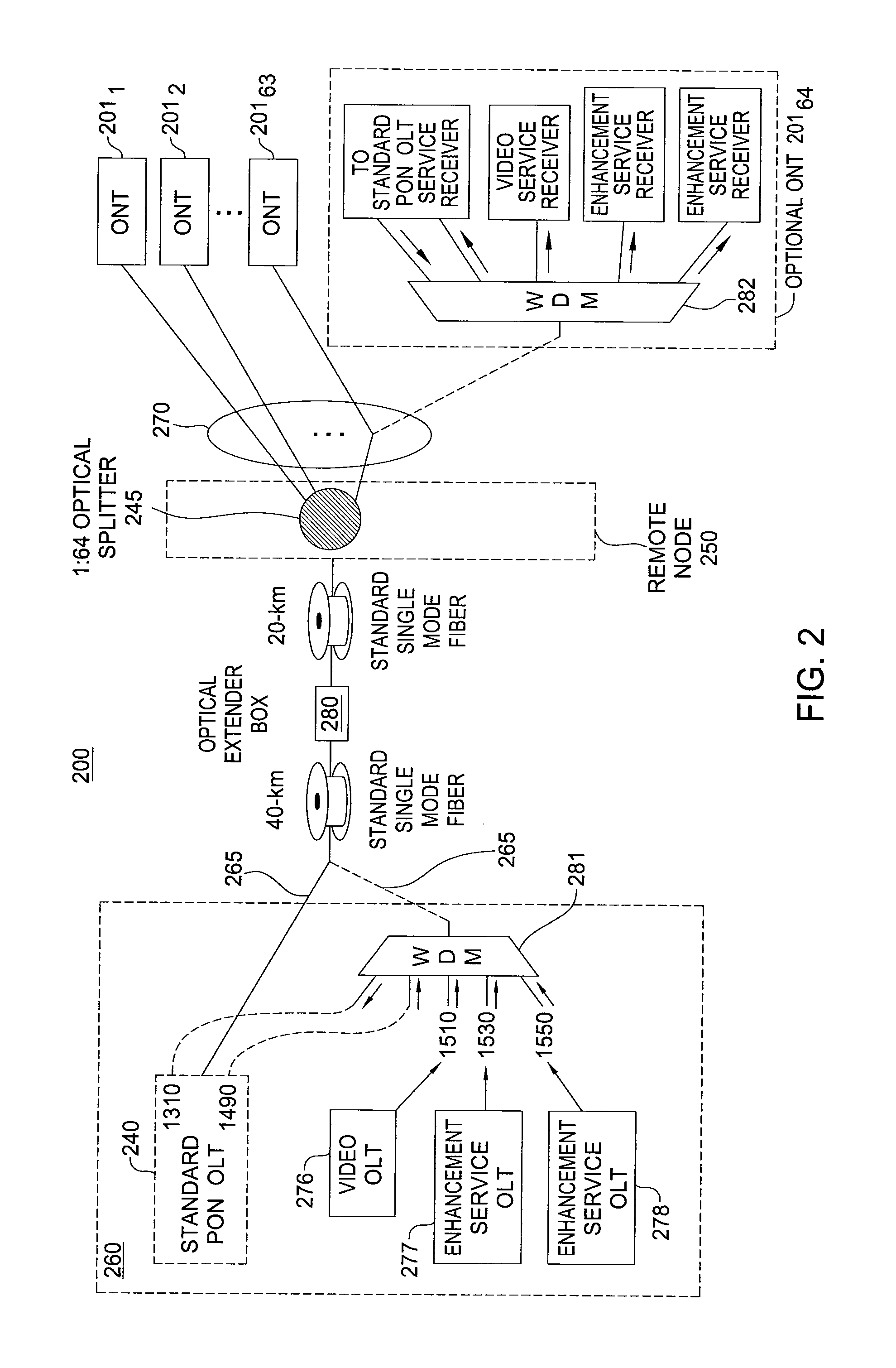Method and apparatus for providing passive optical networks with extended reach and/or split
a technology of optical networks and optical fibers, applied in the field of passive optical networks, can solve the problems of customers not allowing service providers to reduce the cost of the network, limitations of the passive optical network,
- Summary
- Abstract
- Description
- Claims
- Application Information
AI Technical Summary
Benefits of technology
Problems solved by technology
Method used
Image
Examples
exemplary embodiment 400
[0031]In one embodiment, the bandwidth available for each ONT is increased by subdividing a PON and using an extender box. FIG. 4 illustrates an exemplary embodiment 400 with four PONs sharing a common feeder. In describing the interactions of the different components in FIG. 4, those skilled in the art would realize that FIG. 4 may also serve as a flowchart for describing the methodology for increasing the bandwidth available for each ONT by allowing multiple ONTs to share a feeder fiber.
[0032]For example, WDM 481 located at the central office 460 may connect a plurality of PON OLTs, e.g., the 4 PON OLTs 440-443 to the feeder fiber 465. The combined signal is transmitted towards the splitter 445 through the optical extender box 480. The ONTs 401-432 may have wavelength filters in order to pass only the wavelength intended for that ONT. Members of a given sub-PON (e.g., a subgroup of ONTs 401-408, ONTs 409-416, ONTs 417-424, or ONTs 425-432) would use the same optical filter to rece...
exemplary embodiment 500
[0033]In another embodiment, the number of ONTs served by each feeder fiber is increased by using an extender box. FIG. 5 illustrates an exemplary embodiment 500 for multiplying the number of ONTs served by a feeder fiber. In describing the interactions of the different components in FIG. 5, those skilled in the art would realize that FIG. 5 may also serve as a flowchart for describing the methodology for increasing the number of ONTs served by each feeder fiber.
[0034]For example, a 1:P WDM 582 analogous to the one used at the central office is provided at a remote node 545. The WDM 582 directs the wavelength (in both directions) for each of the P passive optical networks to and from a distinct passive splitter (591, 592, 593 or 594) connected to that PON's distribution fibers serving N ONTs. Each of the passive splitters is shown serving 32 ONTs. Table 1 provides an exemplary wavelength plan for sharing the feeder fiber among 4 PONs. The wavelengths are chosen on the CWDM grid.
[003...
PUM
 Login to View More
Login to View More Abstract
Description
Claims
Application Information
 Login to View More
Login to View More - R&D
- Intellectual Property
- Life Sciences
- Materials
- Tech Scout
- Unparalleled Data Quality
- Higher Quality Content
- 60% Fewer Hallucinations
Browse by: Latest US Patents, China's latest patents, Technical Efficacy Thesaurus, Application Domain, Technology Topic, Popular Technical Reports.
© 2025 PatSnap. All rights reserved.Legal|Privacy policy|Modern Slavery Act Transparency Statement|Sitemap|About US| Contact US: help@patsnap.com



